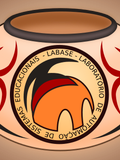páginas
Laboratório de Automação de Sistemas Educacionais
A bridge to cognition through intelligent games
| A Bridge to Cognition Through Intelligent Games | LABASE |  |
Resumo
Computational neuropedagogy applies neuroscience to the problem of learning, whilst learning is intrinsic to the process of understanding. An intelligent game is a neuropedagogical ludic instrument constructed through a scientific process to achieve introspection into cognitive aspects of human reasoning.
The postulate of universal access presupposes a universal cognition apparatus, and fortunately this is the case. Contrariwise, what is not the case is a presupposed uniformly developed apparatus, equally available in each individual. Understanding and accounting for the distinct configuration of each individual is a requirement of universal knowledge access. Intelligent games can cleverly access a non mediated view of the cognition machine.
This work presents an intelligent game calibrated to three developmental dimensions to collect vestiges from the internal cognition engine, revealing the innards of EICA. EICA is the Engine of Internal Cognitive Acquisition, universally installed in every human brain which is responsible for the main course of cognition process. Learning is accomplished by the EICA machine, consisting of eight recognized hierarchical states ranging from simple to high complexity.
The inference that cognition machinery is equally available to every person is the principle behind the proposition of an effective universal access to knowledge. Monitoring the EICA machine performance is a mean to assess and even adapt the process of learning. Under the universal access principle, this means that beyond all the differences that uniquely identify each individual, everyone can have access to knowledge through intelligent systems.
| Palavras Chaves | |||
| Neuroscience · Neuropedagogy · Cognition · Games · Accessibility · Knowledge · Learning |
19th International Conference on Human-Computer Interaction
Thematic Area: Universal Access in Human-Computer Interaction
Session ID: 270
Session Title: Digital artifacts for education and universal access
Autores
| Carla Verônica Machado Marques | |||
 Lattes Lattes |
|||
| Carlo Emmanoel Tolla de Oliveira | |||
 Lattes Lattes |
|||
| Claudia Lage Rabello da Motta | |||
 Lattes Lattes |
|||
Sumário
1 Introduction
2 The observability of cognition
3 Universal access and cognition paradigms.
4 An instrument to investigate the cognition engine
4.1 Development of a research mode
4.2 Anatomy of the cognitive machinery
4.3 The microgenetic-paleopathic resonance
4.4 Depicting the cognitive landscape
4.5 Learning process and effective accessibility
5 References
| Google Documents | |
| Download em PDF | |
| Download em ODT | |
| Citação para este artigo | |
| Cópia no Activ | |
| Cópia no Dropbox | |
| Apresentação PPT | |
| Apresentação Prezi | |
| Sumário no OOG |  |
Copyleft 2017 Carlo E. T. Oliveira
Created by carlo at 15/02/2017 às 12:14
Updated by carlo at 15/02/2017 às 16:14
Tags: Comments
Comments
Nenhum comentário até o momento.
Somente os participantes de labase podem comentar.
